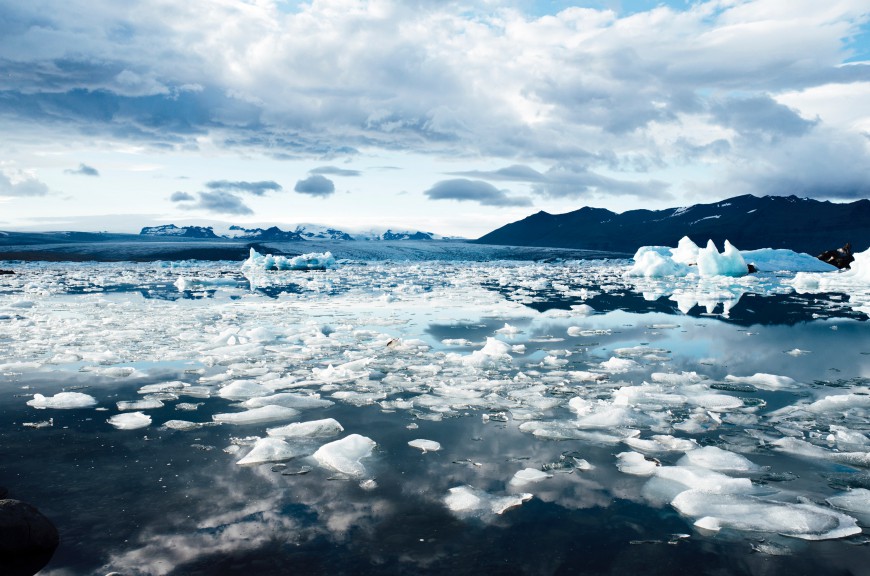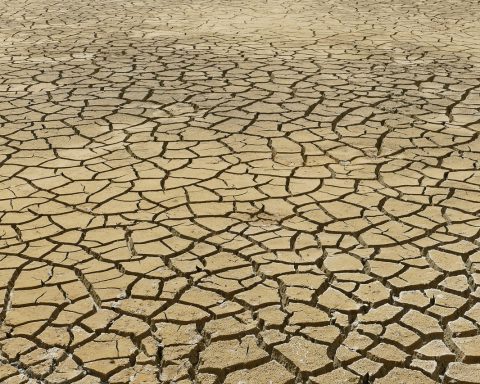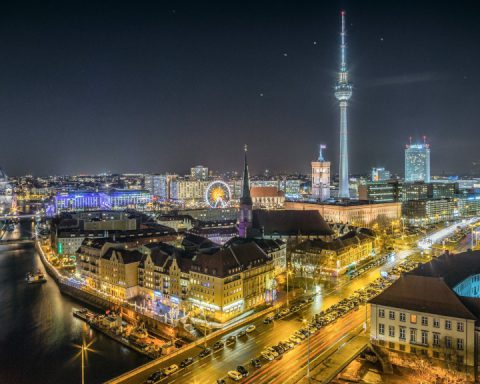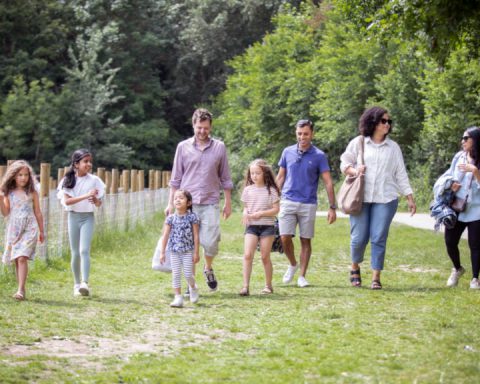The climate change discussion is one not far from any dinner table conversation of late. We hear the statistics and read the terrifying stories of fires and glaciers melting.
In a time like this, as a normal person in society, it’s easy to throw your hands up in the air and say, “What can we do now, anyway? We’re f**cked, let’s just enjoy what’s left of our time. Maybe plan a move to Mars?” Having google searched Mars and realising it’s inhabitable, it may be time to take on another perspective.
There ARE things we can do.
As a collection of people, we can individually do things which can change the course of climate change as a whole. Before looking at some of the possibilities, what’s actually happening to the environment today?
Temperatures have risen almost 1 degree across the world. The planet is heating up at an alarming rate, creating extreme heat levels like we experienced the past two summers in Leipzig. Waters are rising at such a rate that Indonesia announced that they will move their capital away from Jakarta, home of 10 million people, because the city is sinking at a rate of 25 cm per year.
There is now more CO2 in the air than ever before, and by July, we had burnt through a year’s worth of our planet’s resources.
These are just a fraction of some of the emergency situations happening as you read this. Climate change is real, it’s happening. And while this is a terrifying realisation for all of us, we do not have time to idly panic – we must act.
Stop eating meat and dairy

According to the scientists behind an analysis of the damage farming does to the planet, avoiding meat and dairy is the single biggest way to lessen your environmental impact and climate change. Meat and dairy production is estimated to be using 83% of the Earth’s farmland and creating 60% of greenhouse gas emissions in agriculture.
Quitting meat and dairy is easier said than done for a lot of people, as these products are so prevalent in our daily lives now. However, there are many great meat alternatives available and we are lucky in Leipzig to have vegan and vegetarian restaurants (or at least offering such options) all over the city.
Cutting out meat is not only beneficial to the environment but also to your health, as much of the meat today is heavily processed. Amending your diet to a more plant-based one also encourages you to be more inventive with your meals and to try new food that you might have turned your nose up at in the past.
However, if cutting out meat and dairy completely is too much for you right now, you could also just try to lower your intake. Try having 2 meatless meals a day, only eating meat on the weekends or when you dine out. Swap your normal milk for a plant-based alternative 3 times a week. These efforts are not huge to the individua,l but combined with other efforts, they would have a vastly positive impact overall.
Use public transport
It has been public knowledge for a long while that motor vehicle emissions have a detrimental effect on the Earth. Today, car and lorry emissions contribute to one fifth of all global warming pollution coming from the United States. Greenhouse gases trap heat in the atmosphere, which causes worldwide temperatures to rise. Public transport is the obvious answer to lowering these emissions and to creating a more accessible city for all. And luckily Leipzig boasts the third biggest tram system in Germany.

From the perspective of someone who has dealt with the Italian and Irish public transport systems, the Leipzig tram system is efficient, punctual and, most importantly, easy to navigate. It is a very practical way to get around the city as well as being more environmentally friendly.
Even better than using the tram is using your legs!
Cycle or walk the city and enjoy the many open green spaces, with wind in your hair and euros in your bank.
Another type of public transport that should be avoided, if possible, is flying. I can hear the groans as I type this, and I too find this tip a hard one to deal with as I look out the window to a rainy, grey Leipzig. However, we can no longer ignore the facts.
Airplanes are guzzling up huge quantities of fossil fuels every day – 5 million barrels of oil to be exact – making them a key contributor to global climate change.

With plane ticket prices becoming affordable to the general public, more and more people are jumping on flights on a regular basis.
The huge problem with planes is that there is currently no alternative. Electric planes seem to be a thing that might appear in the distant future, but are far from our current reality.
So, the best thing to do is avoid flying.
Annoying, I’m aware, but on a positive note, we live in a very central country. One that allows us to travel to many other places by land. Next time you’re thinking of going on holiday, have a look at the destinations that are possible to reach by train. If booked in advance, they can be quite cheap and also a less stressful experience than dealing with airports.
Wear your current clothes and buy second hand

In this era of Instagram bloggers and “influencers,” there is an undeniable pressure to look pristine in many of today’s societies. This pressure often leads to high street shopping and limited use of clothing before purchasing a newer “more-on-thread” item. This process is now being called fast fashion.
Fast fashion focuses on speed and cost efficiency, as they need to deliver frequent new collections inspired by catwalk looks or celebrity styles. But it is particularly bad for the environment.
The bright, vibrant colouring on much of the clothes you see today is a result of textile dyeing. Textile dyeing is said to be the second largest polluter of our waters, right after agriculture. Moreover, in their bid to make more profits, high street’s fashion factories neglect workers’ rights as well as the environment. There are countless stories of underpaid workers in many countries in Asia who are working in unsafe conditions to produce these cheaper, “fashionable” garments.
Watch The True Cost to get a better idea of the extent to which fast fashion can be harmful, not just in advancing climate change.
There are several steps that you can take to dress more sustainably, and they’re not as expensive as you might think. Firstly, wear what you already have, don’t let society dictate that your clothes are “out-of-style.” Spruce them up by wearing it with a different piece of clothing than usual, or with another style of shoe. Anything you are really finished with, you can donate to the charity shop. Also, shop in charity and second-hand shops.
There’s no better feeling than finding a stunning piece of clothing for all of €2.
You’ll also be safe in the knowledge that no one else will rock up to the party with the same item of clothing as you. Check out flea markets and clothes swaps with friends. Overall, just put more thought into what clothing you buy, if it’s necessary for you and if the source of the clothing is ethical.
Leipzig is covered in second-hand and vintage shops as well as flea markets. So you really have no excuse not to make a positive impact with your fashion choices.
Make more sustainable packaging choices
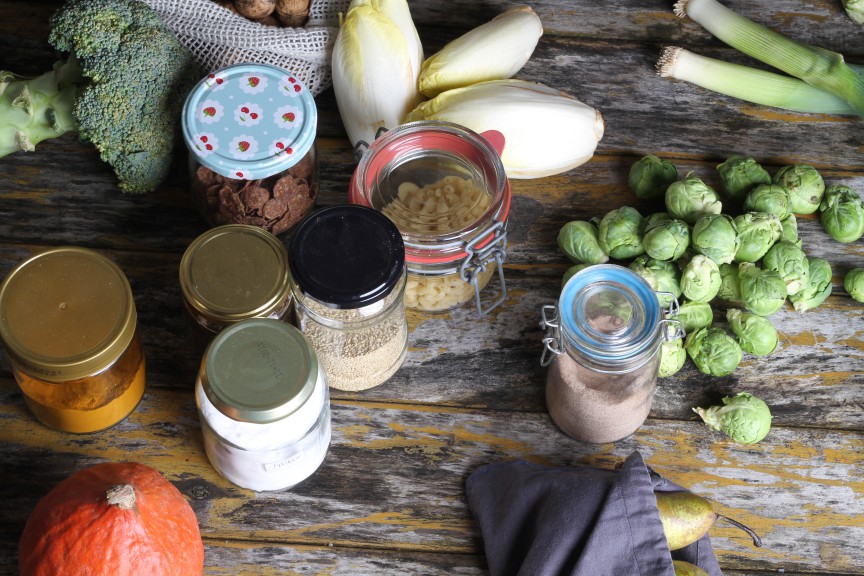
The impact of packaging on the environment is an obvious one. Non-recyclable products end up in landfills or incineration sites, which leads to air and sea pollution. By 2050, if rates continue as they are now, there will be 937 million tons of plastic in our seas and just 895 million tons of fish. Plastic packaging is everywhere you look.
Products with their own natural packaging are being further wrapped in plastic. Leading a zero-waste lifestyle is one of the most efficient ways of lowering the amount of packaging finding its way into our seas and landfills. But how is a zero-waste lifestyle possible on a daily basis for a busy individual? It’s a difficult question to answer, but there are many basic steps we can take which would lessen the amount of plastic swimming with the fish.
Don’t package things that don’t need to be packaged. When buying fruit and vegetables in your local supermarket, try and buy loose products and put them into your basket without a plastic bag.
Bring a reusable shopping bag or backpack whenever you are shopping. They are more convenient and cheaper, so there’s really no reason not to.
Get yourself some Tupperware. Invest in some lunchboxes and a reusable bottle that you can bring on your travels. Having a water bottle also encourages you to drink more water, which has obvious benefits for your health. Lunchboxes are also a useful thing to store yesterday’s leftovers or today’s lunch in.
Start doing some of your shopping in local local Unverpackt stores.
These stores are appearing more and more in Leipzig, and are a welcome sight. Bring your old used jars and stock up on anything from rice to soap. These shops are the way of the future, and the ultimate way to keep your packaging use down.
These are just some of the ways that we, as individuals, can help Mother Earth. Look further in your daily routine and pinpoint ways in which you could be more environmentally friendly.
No one is perfect and it’s not always possible to make the best decision. But by being more environmentally conscious in our day-to-day lives, we can achieve more than we think is possible in this current time of crisis.

